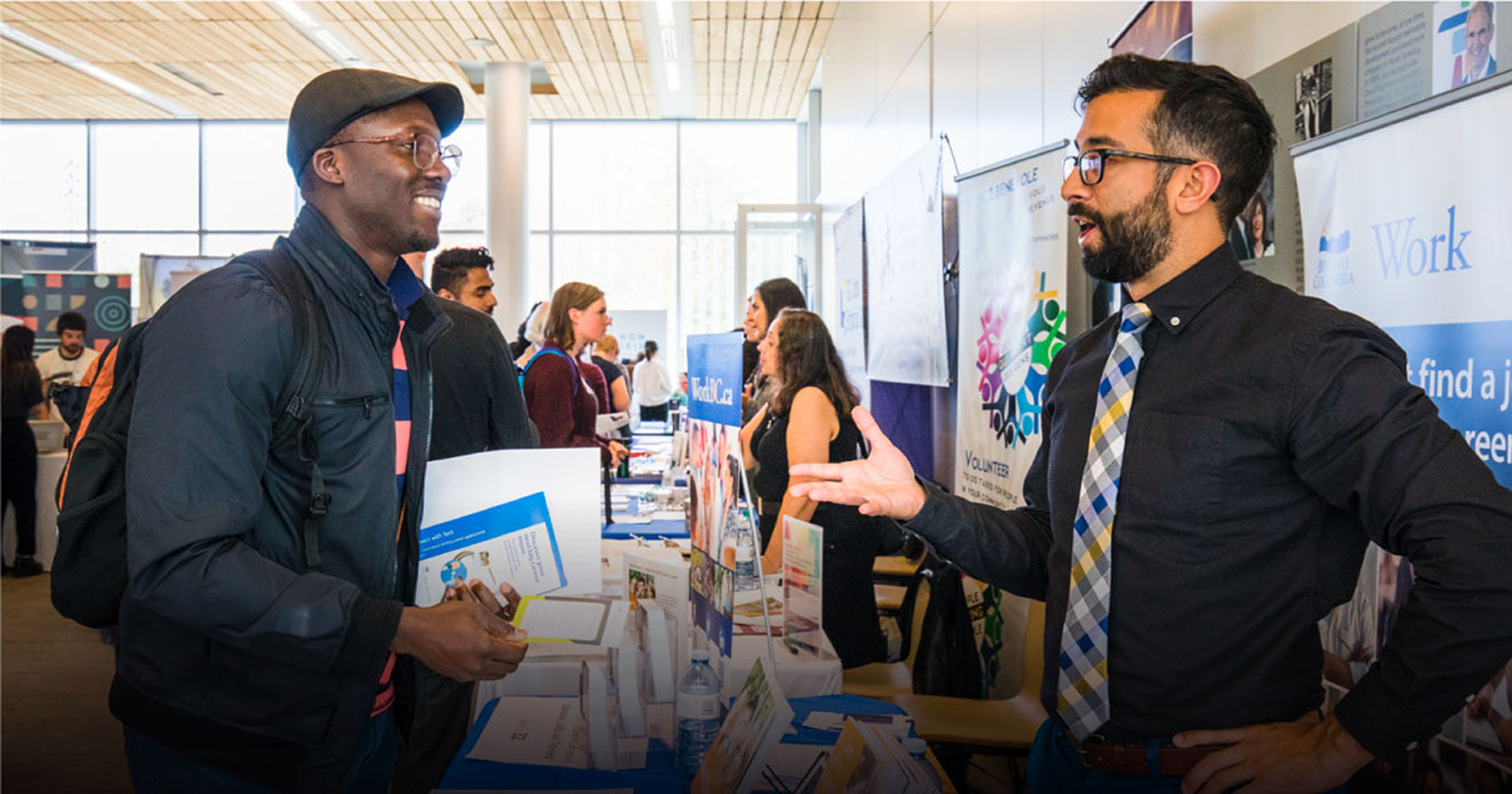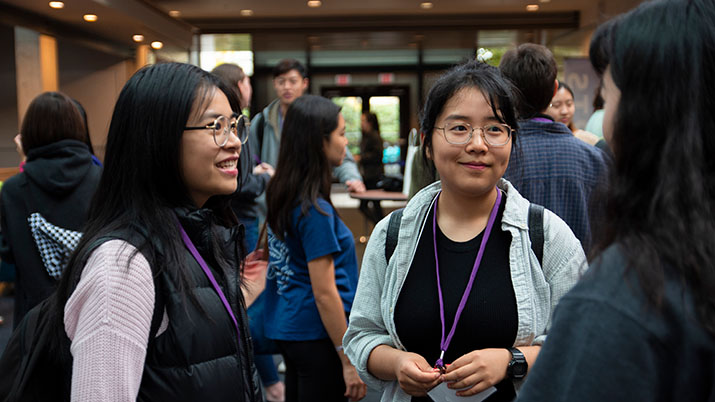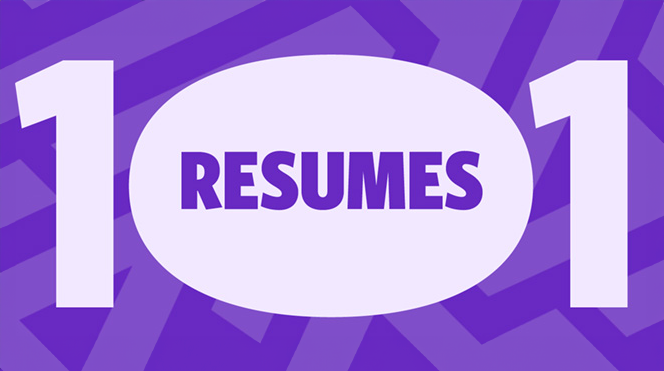

by Robyn Stalkie, Arts Career Strategist at the UBC Career Centre
As each UBC Career Centre Career Fair approaches, I hear a few common questions from students in my advising appointments: What’s the point of attending? What do I say when I meet a recruiter? What should I wear? How can I stand out? I’m nervous—what if I say something wrong?
Career fairs can feel nerve-wracking, but they’re also a great way to make connections and explore new opportunities. To help you feel more prepared, I’ve broken it down into tips for before, during, and after the fair—so you know what to expect every step of the way.
But first, take a moment to think about why you’re going, and what you want to get out of the experience. Are you looking to connect with a specific employer, practice your networking skills, or get a recruiter’s eyes on your resume? Maybe you just want to learn more about what’s “out there.” Whatever the reason, having a goal in mind can help you feel more prepared, and make each conversation more meaningful.
Before the fair
Once you’ve set your goals, a little preparation goes a long way to help you walk in with confidence. This can look like:
- Updating your resume and/or LinkedIn profile
- Practicing what you’d like to say to an employer in the mirror or, with a friend
- Choosing something to wear that will help you feel at ease and make a strong first impression
- Reviewing the list of employers who will be featured at the fair.
🔥 Hot Tip
At the fair
Alright, so you’ve identified a few employers to chat with, printed a few copies of your resume, and now it’s time to head into the fair. First, take a deep breath—you’ve got this! It’s normal to feel a bit nervous, but it can help to remember that employers are also here to make a good first impression. They want these conversations to go well just as much as you do!
When you introduce yourself it helps to highlight a few key things. Here are some ideas to help guide your introduction:
- Personal – Introduce yourself and share an aspect of yourself that relates to the employer and/or role. What interests you about their work?
- Academic – Mention which year you’re in and what you’re studying. What interests you about the subject matter?
- Work – Share what paid or volunteer experience you have so far. What type of experience or opportunities are you looking for next?
- Skills – Highlight skills that might be interesting to the employer. How could those skills help you succeed in a role with them?
For example:
“Hi, my name is Robyn. I’m a 3rd-year Creative Writing student. I really enjoy figuring out the best way to communicate nuanced information to different audiences. I’ve been able to develop that skill through my coursework, and in my role as VP External with the UBC Climate Justice Club. I’m interested to learn more about any roles at BC Hydro that would allow me to tap into my communication, outreach, and teamwork skills — can you tell me a bit about the types of roles you’re hiring for?”
Once you and the employer have introduced yourselves, you’ll have a chance to ask a couple of questions. Here are some ideas:
- What would the hiring process for [role] look like?
- What does a typical day (or week) in this position look like?
- What skills or experience would make a candidate for this role stand out to you?
- What do you see as the most challenging aspect of this position?
- Can you tell me a bit about the typical timelines for hiring at your company?
- What do you enjoy the most about working for this company?
- What is the best way to apply for a position with your company/organization?
- Could we stay in touch after the career fair? If so, what’s the best way to connect?
Be mindful of the time, especially if others are waiting to speak with the employer. Before you move on, take a moment to thank them for answering your questions and jot down a few quick notes—like their name, job title, or anything that stood out in your conversation. Then, when you’re ready, head to the next employer on your list!
After the fair
Nice work! Take a moment to celebrate your efforts—career fairs can take a lot of energy, so give yourself credit for showing up, making connections, and putting yourself out there.
Then, reflect on your key takeaways, make some notes about what you’ve learned, and think about your next steps—whether that’s adding someone on LinkedIn, sending a thank-you email, or actually applying for a role.
🔥 Hot Tip
And finally, keep an eye out for other opportunities to network through events hosted by the Compass Arts Student Engagement Hub, the UBC Career Centre, and your own academic department. You never know what connection could lead to your next great opportunity!
Still on the fence about career fairs? This article explores three reasons they’re worth attending for Arts students!




